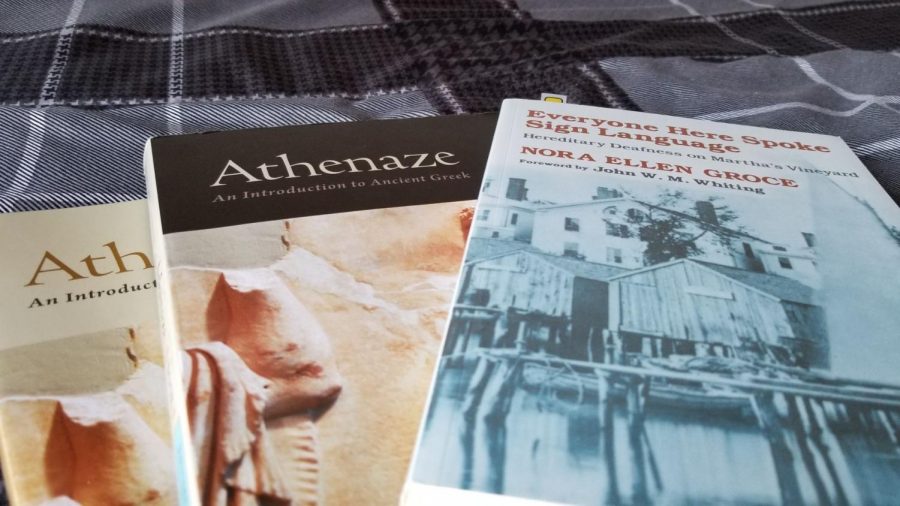No foreseen future for Arabic, Japanese programs
Over a year after the decision to indefinitely cut Arabic and Japanese course offerings, these languages remain absent from the RWU course schedule.
The decision to discontinue Arabic and Japanese offerings came about in the spring 2016 semester due to low course enrollment in each language, although Robert Eisinger, then dean of the Feinstein College of Arts and Science, expressed that the courses might return in the future.
According to Anthony Hollingsworth, professor of foreign languages and classics and chair of the Department of Modern Languages, Philosophy, and Classics, students have expressed “little to no interest” in these courses since they were discontinued, preventing the department from bringing these classes back.
When Arabic and Japanese courses were offered, the department often had trouble attracting the desired amount of students into each class, Hollingsworth said.
Preferably, a class will have at least ten students, and reaching this threshold was particularly difficult with upper-level offerings, he continued.
In order to gauge interest in potential course offerings, the department looks for interest among students at open houses and summer orientations.
Additionally, current students will sometimes approach the department to express interest in additional language course offerings.
While some languages, such as French and Spanish, can be taken as a major or minor, languages with more limited course offerings are not attached to a major, minor, or Core concentration. As a result, Hollingsworth said that these courses are usually seen as elective credits, which students often find difficult to fit into their schedules
“You have the difficulty of programs, majors needing more and more courses for their requirements… the more classes they need, the fewer courses there are for electives,” Hollingsworth said.
Joseph Roberts, professor of politics and international relations with a focus on Middle Eastern politics, has also witnessed certain language course offerings being discontinued at RWU, with particular attention on Arabic courses.
While entry-level courses often demonstrated a more sizable enrollment, Roberts observed that these classes “gradually lost students until they become infeasible to offer pedagogically or financially.”
In order to foster an environment where languages such as Arabic can thrive, Roberts believes that the university should invest in a full-time faculty member to teach the language, as well as related extracurriculars and further engagement with textbooks.
Roberts, who has taught at RWU for ten years, also said that the university “seems to have cut back dramatically on its international focus.”
“The world is more interconnected than ever before, so understanding and embracing the globalized world where students will be working and living is more important than ever,” Roberts said. “That said, the last couple of years [have] seen a dramatic shift in emphasis on campus to local relationships. “
He added, “While these are terrific programs and hugely beneficial to students, faculty, and the communities that are served, we have shifted too far to the local at the expense of the global. There needs to be better balance.”
Ultimately, Hollingsworth expressed that the department will continue to look for opportunities to bring back Arabic and Japanese course offerings, although they will first need to ensure that these programs are sustainable.
“Trying to expand the language program is always central to our mission, but with limited resources we need to make sure that we make good choices,” Hollingsworth said. “Good being defined as ones [where] we know it has legs.”






